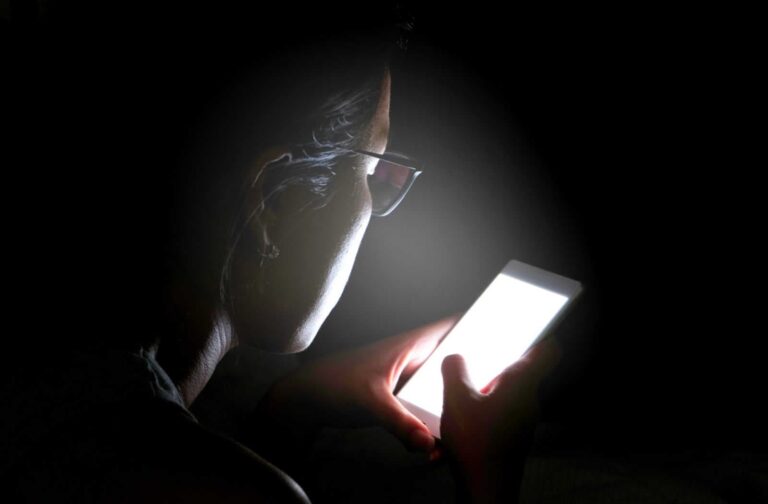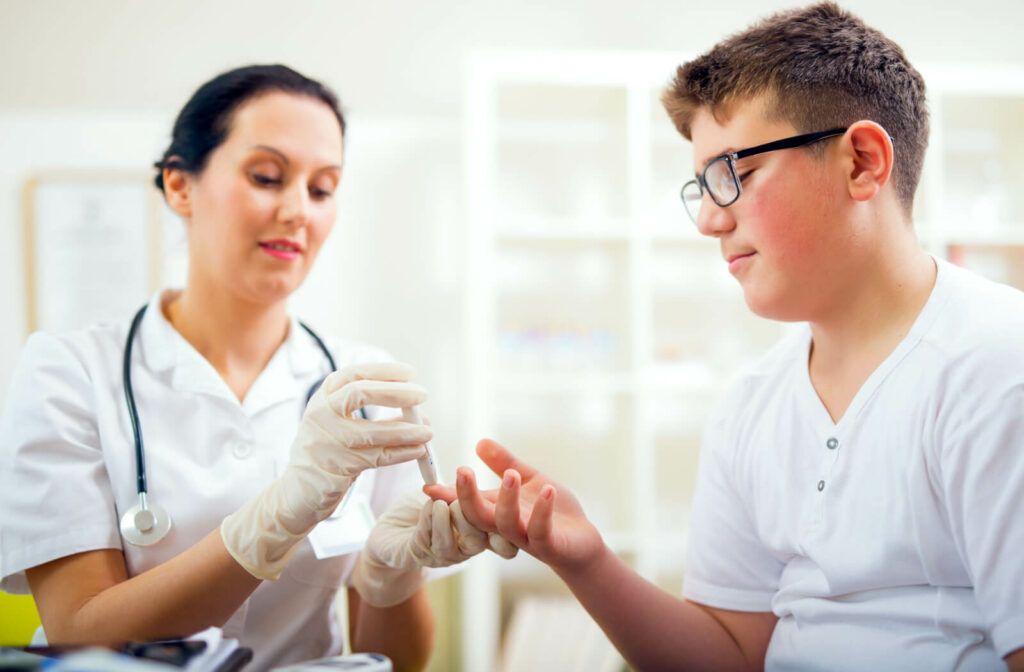Table of Contents

Introduction
Myopia, commonly known as nearsightedness, is a vision problem in which people can see close-up objects clearly, but objects in the distance appear blurry. The American Optometric Association estimates that myopia impacts nearly 30% of Americans, making it one of the most common vision problems nationwide.
Myopia typically develops during childhood and can continue to get worse until it stabilizes around the age of 20. However, it is possible to develop myopia well into adulthood, due to factors like visual stress and medical conditions such as diabetes. Genetics and environmental factors can also play a role in developing myopia and if it continues to worsen. In most cases, myopia will worsen if not properly treated.
While it might not be possible to reverse myopia, its progression can be slowed or even stopped. Myopia control can prevent further vision loss for individuals with myopia.
During your yearly routine eye exam, your eye doctor will test for vision changes, including myopia and work with you to determine what type of myopia treatment might work best for you.
What Is Myopia (Nearsightedness)?
People with myopia either have an eye that is too long or a cornea that is too curved. This causes light to focus incorrectly on the retina, which is the part of the eye responsible for transmitting visual images to the brain. As a result, distant objects appear blurry, while close-up objects remain clear.
According to the National Eye Institute, the number of Americans with myopia has nearly doubled since 1971. We can look to East and Southeast Asia for signals that the condition will only continue to rise in prevalence, as a reported 80-90% of children with 12 years of schooling have myopia in this region.

What Causes Nearsightedness to Get Worse?
Myopia can gradually get worse over time, especially if left untreated. If your myopia is getting “worse,” that means that your degree of nearsightedness is increasing. Objects in the distance that were once clear, may become blurrier.
While the exact cause of myopia is unknown, genetic and environmental factors are believed to contribute to its development and progression. Factors that may cause your myopia to get worse include:
- Genetics: Studies have shown that children who have one or both parents with myopia are more likely to develop myopia themselves.
- Visual Stress: Spending a lot of time doing close-up activities like reading or using a computer can cause myopia to worsen. These activities can especially impact children whose eyes are still developing.
- Screen Time: According to some studies, excessive use of digital devices like computers, tablets, and smartphones can contribute to myopia progression.
- Less Time Outdoors: A lack of time outdoors may also cause myopia to worsen. Not utilizing your distance vision during outdoor activities may contribute to myopia.
- Health Conditions: Health conditions like diabetes can cause myopia to develop and get worse.
What If My Myopia Gets Worse?
In most cases, myopia will stop progressing once you reach early adulthood when your eyes stop developing. However, it is possible to develop myopia well into adulthood, primarily due to visual stress or underlying health conditions. Proper myopia management can benefit anyone with myopia, regardless of age, to stop the condition from progressing into a more serious eye condition in the future.
High Myopia
If left untreated, myopia can develop into high myopia, which can cause an increased risk of retinal holes and tears. High myopia has also been associated with an increased risk of retinal detachment, glaucoma, and cataracts, all of which can cause significant vision loss and blindness.
Myopia Treatment
Proper myopia management and treatment are key to slowing, or even stopping, myopia from getting worse. In many cases, your optometrist will prescribe corrective lenses to correct your myopia and restore your distance vision while you’re wearing them. This may include glasses or contact lenses, depending on your vision and lifestyle needs. While traditional corrective lenses can correct your vision, they will not stop eye growth.
There are myopia control options that specifically target eye growth. Some of the myopia treatment options we offer at Golden Vision Optometry include:
- Specialty contact lenses, including Acuvue Abiliti and MiSight lenses
- Ortho-k (orthokeratology)
- Myopia control glasses
- Atropine eye drops
Some individuals may benefit from a combination of treatment methods. You should always consult with your eye care professional before starting or changing your myopia treatment.
Your Myopia Control Team
Everyone’s eyes are different. When it comes to stopping myopia from getting worse, it is essential to have a myopia treatment plan that is tailored to your specific vision and lifestyle needs.
At Golden Vision Optometry, we are proud to provide personalized eye care that takes your unique vision and eye health needs into consideration. Our team is experienced in myopia control and will work with you to create a myopia control strategy that works for you. Contact our team to discuss your myopia control options today.








